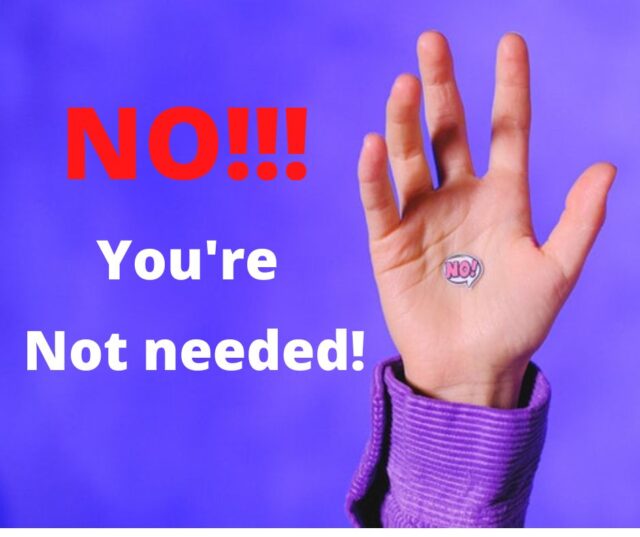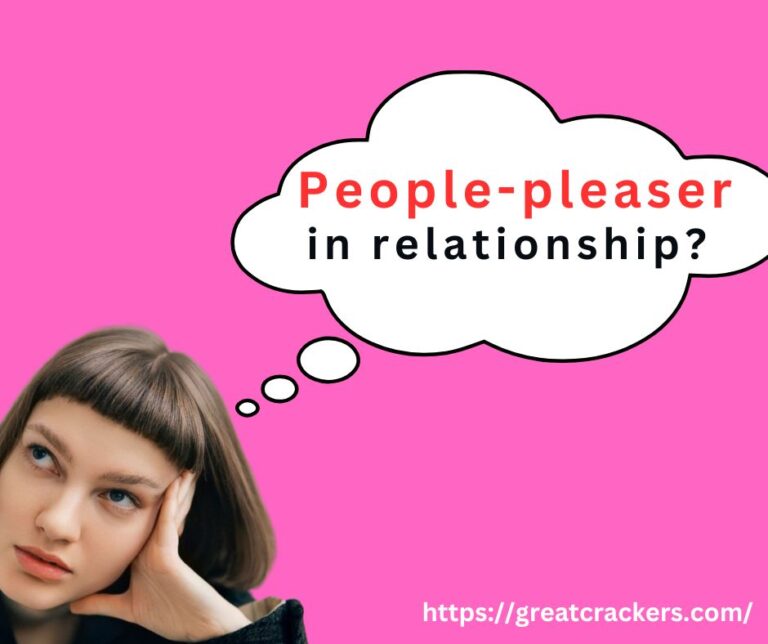Types of Rejection in life and how to effectively deal with them
Rejected before? Or you’re recently trying to get over a particular type of rejection in life? Then you’re not alone. Rejection is terrible yet universal.
In this article, we’ll consider the following:
- The Meaning of Fear of Rejection
- Cause of Fear of Rejection
- Signs of Rejection
- Types of Rejection in Life, and
- How to Effectively Deal with Them
What is the Fear of Rejection?
To be frank. Rejection can be hurting, especially when it comes from people and quarters we least expect. And profoundly, the pain it causes to a person isn’t that different from the pain someone with physical injury goes through.
Findings from a careful study carried out at the University of Michigan show that the intense feelings of social rejection activate the same response from our brains as physical pain.
Therefore, rejection is the feeling of pain, guilt, sadness, and anxiety a person undergo for not being accepted. It could be in a relationship, friendship, or maybe in the process of vying for a post or trying to land yourself a job that you’ve always wanted badly.
With that said, you can see that rejection is not a pleasant experience for anyone. But then, the fear of rejection even kills faster— and stops you from living your best life.
What Causes Fear of rejection?
First, the good news is that one can deal with the fear of rejection.
Many seem not to know where the fear of rejection comes from. Yet many people experience it in their places of work, in relationships, and even in dating.
However, the underlying causes for people’s fear of rejection may vary from person to person. Usually, people going through the following deep-rooted conditions are more likely to face a constant fear of rejection:
- Poor esteem
- Loneliness
- Physical and health conditions
- Depression
- Trauma from past rejections
Yes, many people fear rejection because of the rejection they have experienced in the past. For many people, it’s childhood rejection from their parents, older siblings, teachers, and other figures in their lives that ought to serve as role models to them.
Types of rejection in life — Signs of Fear of Rejection
Different types of rejection in life come with various signs. And often, people respond differently to the fear of rejection. But the signs of the fear of rejection you’ll detect in people scared of losing acceptance from others in any situation include:
1. Always wanting to please people
It’s true that love demands sacrifices. But people who have rejection issues can go out of the way to earn the acceptance of others. Even if it means burning their skins.
Becoming a people-pleaser may seem like a better way to satisfy one’s need of social belongingness. But in the long run, that terribly lead to rejection from others. Remember, people don’t (and shouldn’t) fall in love with you or accept you for the sake of pity.
2. Unassertiveness
People experiencing the feeling of rejection often get locked up in silence. They rarely stand up for what they want by speaking out. This explains why you may have a colleague at your workplace managing a working situation that demands him to speak out. Instead, he would keep quiet and allow that to increase his anxiety and result in a decline in his work performance.
3. Inability to live out their real lives
This is somewhat related to the preceding points already outlined. People who dread rejection from others barely put on their true character and personality. And you may want to call that living a “fake life,” as it drives home the point in a better way.
Remember, there’s always a room for change, but your character is the way you’ll act consistently and repeatedly at different times. So if you are not good at lying or being deceitful, trying to do so to earn the approval of others will not only make you miserable. But will cause a far-reaching burnout.
4. Passive-aggressive behaviors
Since many people accept things they naturally wouldn’t want to undertake because of the fear of rejection, a lot of them resort to behaviors that conflict with initial acceptance.. And these behaviors are passive-aggressive behaviors, which may include showing up late in meetings, lagging in delivery time for projects, showing tactical avoidance of responsibility, etc.
5. Easily manipulated
The fear of rejection can make anyone susceptible to manipulations from people, especially those who have mastered the art of doing so. And these may result in immense losses in one’s life, which may be loss of money, time, job, a loved one, friendship, or as the case may be.
6. Lack of control of their lives
Not being in control of one’s life and emotions is a symptom of fear of rejection. And this can influence virtually every area of a person’s life.
According to Adele Wilde, a counselor and psychotherapist, the fear of rejection can adversely affect a person’s choice in the following areas:
- Intimate interpersonal and marital relationship
- Level of education
- Types of career choices
- Level of achievement and ambition
- Choices of leisure activities
- Our behavior at work
- Family relationships
- Our role in community life
Types of Rejection in Life
As said earlier, rejection can occur to anyone and is almost an inevitable life experience. But it crops up in various contexts, leaving profound implications.
Some of the types of rejection in life people go through include:
1. Familial Rejection
Everybody came from a home— a biological family. But sadly, at the early stage of their lives, many experience rejections from their parents, older siblings, or close family members. That is to say, people who are supposed to act as their guardians, role models, and facilitators in the family.
Rejection from parents may include abandonment, abuse, neglect, and maltreatment that displays denial of love and affection.
2. Social Rejections
Social rejection is the kind of rejection in life that cuts across all social groups. And therefore, both young and old experience it. Social rejections for some children may start with bullying from others in their schools or neighborhood.
But for adults, it may mean going through situations at their workplaces that may make them feel sidelined or alienated from others. For example, a person could be excluded from lunch at this workplace for a biased reason.
Quite frankly, social rejection influences how we think, our emotions, and overall personal health if not managed properly.
3. Romantic Rejection
As one grows up, at some point, one gets ready for a romantic relationship with the opposite sex. And usually a guy initiate this kind of relationship by asking a lady out. But unfortunately, thousands of young men go through extreme feeling of rejection when these ladies turn them down. And this kind of rejection can be termed romantic rejection.
Romantic rejections often bruise the ego of most young men. But sadly, some of them feel this way because they believe that they deserve a chance to date and win affection from ladies they’ve been nice to in some ways. So when abruptly rejected or placed in a friend zone, they feel pain.
4. Rejection in a relationship
Numerous relationships come to a bitter ending, either because one or both partners felt seriously rejected in so many instances. And therefore, they lose their grip of hope in the relationship.
You experience rejection in a relationship when your partner treats you as though you’re like any other casual acquaintance in their life.
For instance, your partner may choose not to hide a secret, an experience, or an event that is of significance to the health of your relationship. Or maybe your partner decided to withhold intimacy or affection through the way they behave toward you— and eventually break up with you— leaving one’s heart shattered.
Undoubtedly, rejection in a relationship can make one feel not good enough. Both for a guy and a lady.
Nevertheless, as mentioned earlier, regardless of the types of rejection you may go through, the beautiful truth is that you can get over them gracefully. Thus, you’ll learn some practical ways to get over rejection in a moment.
Types of rejection in life: How to get over being rejected?
Going through constant rejection, ranging from being rejected in a dating relationship by someone you love, on your first date, to witnessing social rejection at one’s place of work, is a heartbreaking experience. But if you want to be free from the mental consequences and terrible conditions that accompany rejection or the fear of being excluded, here are some practical tips on how to stop fearing rejection:
#1. Accept the rejection
The first step in dealing with rejection and the subsequent fears of rejection is to take the rejection into perspective. Do this objectively. And that would mean understanding why it happened, admitting how you feel about it, and then choosing to move forward regardless.
For instance, someone who just received a rejection letter for a job application needs to be brutally honest about how he feels about the rejection. Even though it means conversing with someone ready to listen and be helpful. But then, he must recognize that other job opportunities await his applications.
#2. Prioritize self-care
People who strongly desire acceptance from others are most of the time guilty of not taking their self-care seriously. But to overcome rejection, you must learn to prioritize self-care. That is giving yourself the utmost care that you deserve for your overall physical, mental, and spiritual well-being.
But to do that, you must first know that one cannot get the love of others on command except feigned love. In other words, you should not tear yourself apart because of a rejection you got on a first date, your dating partner, or at work. For goodness’ sake, if you don’t care for yourself, who will?
#3. Take pleasure in activities you enjoy
Still, on the track of taking care of yourself, you should try to engage in activities or exercises you love doing. You could decide to go to a pool to swim if you enjoy doing that. Or perhaps, you can choose to tour a place you’ve wanted to go.
That’s if you have the resources to do that.
Also, you may decide to spend time with those you love and who appreciate and value you in return. Good gracious, who would want to kill themselves by staying in a place with people or someone not genuinely interested in them?
#4. Don’t be hard on yourself
Many broods over rejection they go through, often thinking they were the cause. Some will say things like this to themselves:
“I’m not good enough”
Maybe I am not her/his perfect match or class
“I think I suck”
“I must be doomed for having this kind of background
But doing all of these does not help one get rid of the feeling of rejection. It exacerbates the whole situation and punctures your self-esteem the more.
#5. Use the rejection to your advantage
While we feel hurt over heartbreak just as our brain responds to a physical injury, rejection can lead to self-discovery and growth. But rather than brooding excessively over how and why your friend, your ex, your employer, or someone you love rejected you, you should use the rejection to your advantage.
That is to say, one must be willing to learn from it. Remember, everything happens for a reason, though it may not be crystal clear in the first instance. Therefore, you should try to sieve out life skills and lessons from the rejection experience you need to become the best version of the person you can be.
Don’t forget you’re becoming and evolving at every stage of your life.
#6. Regulate your thoughts and emotion
You’ve heard about the saying, “Once Bitten, Twice Shy”.
One of the ways of getting yourself out of the constant feeling of rejection is to learn and master the ability to regulate your thoughts. And to achieve this, you need to address issues that revolve around purpose, self-esteem, and destiny.
On this ground, you may want to reflect on the following question:
- Who am I?
- What do I want out of life?
- What is my purpose in life?
- What are my belief system and core values as a person?
- What are my gifts and talents?
- In what way am I valuable to my world?
- Would I allow people or my environment to dictate what my life turns out to be?
- What are my fears?
#7. Face your fears
As humans, we all have fears, even when many decide not to admit them. For some people, their fears come from the inability to be part of social gatherings due to social anxiety. And for some others, their fear is having to initiate and maintain an effective conversation.
In any case, one doesn’t get better by running away from their challenges. Neither can you solve a problem by dodging away from it and its cause.
Practical explanation of type of rejection in life
Imagine 24years old Greg feels very uncomfortable in social gatherings and cannot strike meaningful conversations with people because of his fear of social rejection.
What type of rejection in life could Greg be facing? What do you think he can do to face his fears?
Well, you would be on track if your recommendation to him includes the following:
- That he tries as much as possible to attend suitable parties and participate in safe and meaningful social gatherings
- He should try to greet almost everybody he comes across or in contact with every day. Starting with a simple Hello, good morning, or good afternoon (whatever appears suitable in your region and culture)
#8. Embrace assertiveness
Last but not the least. Learn to be assertive. But before one can embrace assertiveness, one must have worked on your self-esteem and painstakingly answered some of those fundamental questions in tip 6: Regulate your thoughts and emotion.
Being an assertive person does not only enable you to effectively deal with the rejection but earn the respect of others. And then you’d have overcome the tendency to want to lick the toes of others to gain acceptance from them.
Conclusion on types of rejection in life
Indeed, not being able to stop rejection can negatively impact one’s relationship and lead to ill mental health and conditions such as depression and anxiety. But you can learn how to manage the fear of rejection by applying some of the tips above. Meanwhile, how long it takes to get over the feeling of rejection depends on how ready one is to commit to leaving the past and choosing to take action in the present for a better future.








Thank you for this piece
Thank you Evi for your engagement. Glad to know you found the piece helpful.
Great piece, bro. Keeping Cracking.
Thank you.